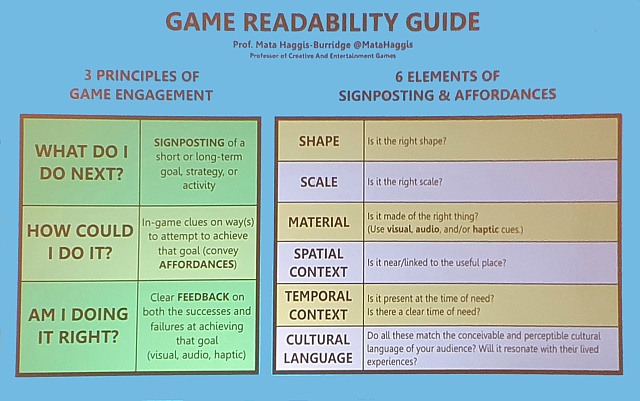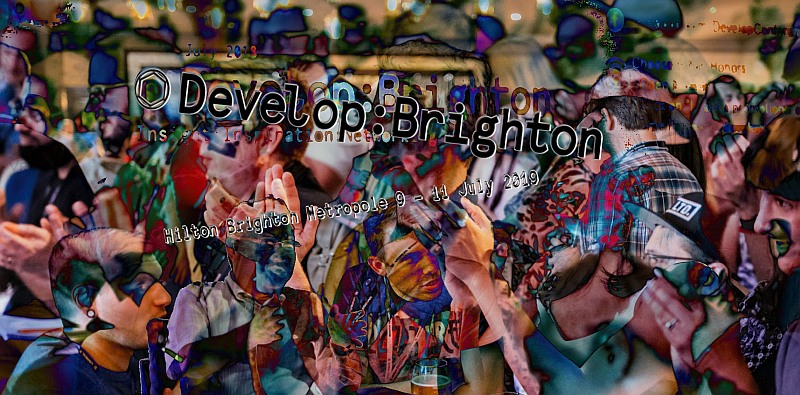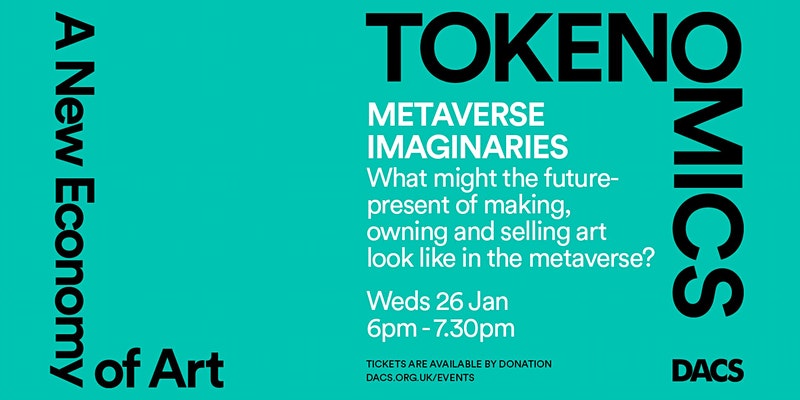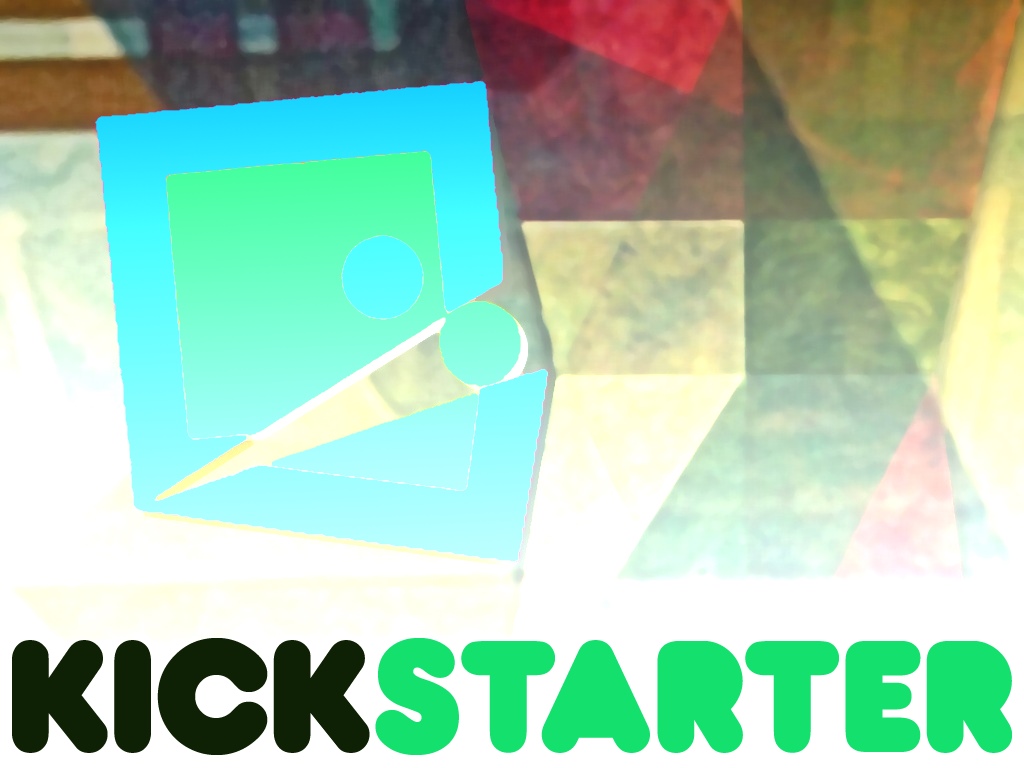I am having a break form EVA-London. I am one day Tuesday of for Develop Brighton. Here are my notes:
2019-07-09 21:19:52
Keynote:
after developing joe danger and joe danger two large frustration
started a new project out of the scratch
Nomads Sky with a design concept like a kid would do
no business plan at all. just the pure joy of and for the idea
kickstarter
release
overwhelming noise
but there are some valuable signals in that noise
remove the conversation that does not have to do with the game itself
(social misbehave, price point, game developer, bullying the dev team)
the average persons is playing the game for 25 hours (higher than triple A games)
change in the communication strategy
decision to talk to players through patches be the release notes
not talking to the press for the first two years
because the experience showed parts of press behaves like an extension of
the common players community (which usually do not play your game)
now framing the communication with updates and talk to the press about that specific
(also a question of time)
since alpha release the game has grown hugely - when the game will be finished? Don't know
no plans / other plans
probably when the team starts another game project
part of the develop strategy - constantly ship updates to change the state
every up to 3 months feature release, monthly ones, bug fixes, weekly events, polish things
as long the excitement about the team does stays, as long the team is carry on,
until the team looses interest (no routine).
the correct size? No aiming for a certain size, if it fits it fits even if you are "small"
freedom of joy
"We have been dreaming about the stuff we wanna do!"
Let's make something really crazy and ambitious.
It is not worth to waste your time on something you do not really like,
because making games is always hard (without joy even harder).
------------------
raheel yawar flying sheep studios
In-game Content Generation using machine learning
game client recommender server
gathers player data (user profile)
create side quests (environment)
1 Quest environment
2 Quest giver NPC
2 difficulty
4 phases
5, skill
6.weapon accuracy
... and more
explicit - implicit feedback use both
pre-generated 90000 quests
content based / rule based
neighbour hood filler
tensor filter
matrix filter
- p: weapon accuracy
- p: health lost
_ p: failure rate
what does the player enjoy?
environment, quest giver, phase types
global average accuracy (40%) vs player (25%) example
piece wise near function reduces the difficulty by 1 point (it's a data graph function)
content based method
easy to formulate
small runtime
needs to be tailored made
iterations needed
can miss out on information
can fail completely use when/if heuristic prediction instead
collaborative filtering
serious
light < > violent action
childish
user/movies ratings -- utility matrix
the more data you have the better your recommendation becomes
similar to cluster profiles
use cosine similarity
utility matrices - combine them each matrix has it's own rating
(u can use reinforcement learning also)
------------------
the narrative design survival guide
chris bateman international hobo
the play does not always wants to cooperate with your story (plot)
chain of way points that triggers story events
(open world)
narrative design challenges is to create story structures for game structures
feeling "we do not really know what we are doing what we are doing (in game|story design)"
< character < > plot < > theme >
character is and real person in game world but also a puppet in the real world aka the player
charakcer as mask of the player
plot >(in world) goals
problem agency
players takes turns with the developer playing the avatar > c g, p g, a b
avatar personality aligns with player's desire for mischief > c b, p g, a g
avatar purely as witness (proteus) > c b, p ?, a ? ambiguity
developer invites the player to become the character (shen mu, sunset) > c ?, p g, a ? (the character has a specific personality)
actions
Zelda avatar-world, weapons-enemies, tools-obstacles collections, wallet keys treasure, mounts, macGuffins
Tomb Raider avatar-world, weapons-enemies, tools-traps, wallet key treasure, macGuffins(maps), Butler and bike(Mount)
Theme:
game mechanics should fit to the theme if you have one.
dramatic purposes
four questions:
how does your story systems aligns withe the other game systems?
What is the relationship between Mash and Char?
Where do plot agency and theme emerge from game structure?
What are the plot-devices that allow the player to tell that story?
------------------
Everything tells a story
haden blackman hanger 13
every player's story is unique
mountain: theme
overarching story, intro, rising action, climax, falling action, resolution
player beat
[
my 5 cents:
there something wrong about the player's involvement arch ->
- in the resolution phase the involvement falls to zero again
- first the player starts with involvement = zero, too
if the game is so boring why should i play it - even worst if the takeaway is
boredom why should i play it.
Is this the reason why so many players play so many games never to the end?
Do we follow|implement the wrong (incomplete?) models?
]
resolution => damage complete
intro needs to setup the involvement into the story/game
[
hero story - rewarding - but why we are sympathetic with coyote instead of the always victorious roadrunner
]
------------------
showing the fun: simple checks for world readability
mata haris-burridge Breda-University
your game has two types of content: interactive and non-interactive stuff
telling the difference is almost never your games fun
signposted, afforded, positive feedback, negative feedback
signposting: the communication of affordances everything with a hammer is obviously clear and good
utility usefulness functional readability aesthetics (aesthetics choices might break this)
material, shape (scale)
contextual hammers - spatial and temporal context
that thing can be used for to fullfill that thing - should always works contextually
don't be unfair
perceive - but - ease/willingness to conceive
life experiences / culture (established) awareness

signposting interactions
visual, audio, rarely haptic
purposely transformed by possible actions (semiotics)
"thinking fast and slow" daniel kahlemane
------------------
designing an esports, levelling up your competitive game
spike laurie hiro capital
the challenge
... the more points ahead
Studios are chasing the zeitgeit from genre to genre
the esport buzz has put pressure on the market
fun, fair, sustainable - the objective
overwatch - fun to play, not so much to watch (second engagement row: viewership)
fortnite . a little randomness at: the start where dropped and with which weapon
but new items have been unbalanced - the had an heavy impact on the game balance
impact of in game selllings (cards, weapons, advantages) need of same skill levels?
fifa ultimate you need to think about the in game economic system - let mothers, kids without large budget in your game
sustainable - stay for a long time - long tail motivation and stick out
pyramid:
grass roots (face it etc) - semi pro(mdl) - pro(esl) - legendary (world championship tournaments)
inspire aspire
- matchmaking
- anti-cheat
- spectator mode
monetisation
- careful playing of revenue streams will prolong your competitive lifecycle
- media, licence and brand sponsorships can inject significant revenue into your programme
- bringing the community on-side with bespoke dlc and mtx can be significant boost (best in class: the international)
in-game rev | media license | brand sponsorship | bespoke dlc/mtx
it is all about player retention and around
focus on your players
whole pyramid ground up know where you are going
build to last
it's a marathon, not a sprint
be fiscally conservative
allow your consumers to support the game with the right tools
------------------
after developing joe danger and joe danger two large frustration
started a new project out of the scratch
Nomads Sky with a design concept like a kid would do
no business plan at all. just the pure joy of and for the idea
kickstarter
release
overwhelming noise
but there are some valuable signals in that noise
remove the conversation that does not have to do with the game itself
(social misbehave, price point, game developer, bullying the dev team)
the average persons is playing the game for 25 hours (higher than triple A games)
change in the communication strategy
decision to talk to players through patches be the release notes
not talking to the press for the first two years
because the experience showed parts of press behaves like an extension of
the common players community (which usually do not play your game)
now framing the communication with updates and talk to the press about that specific
(also a question of time)
since alpha release the game has grown hugely - when the game will be finished? Don't know
no plans / other plans
probably when the team starts another game project
part of the develop strategy - constantly ship updates to change the state
every up to 3 months feature release, monthly ones, bug fixes, weekly events, polish things
as long the excitement about the team does stays, as long the team is carry on,
until the team looses interest (no routine).
the correct size? No aiming for a certain size, if it fits it fits even if you are "small"
freedom of joy
"We have been dreaming about the stuff we wanna do!"
Let's make something really crazy and ambitious.
It is not worth to waste your time on something you do not really like,
because making games is always hard (without joy even harder).
------------------
raheel yawar flying sheep studios
In-game Content Generation using machine learning
game client recommender server
gathers player data (user profile)
create side quests (environment)
1 Quest environment
2 Quest giver NPC
2 difficulty
4 phases
5, skill
6.weapon accuracy
... and more
explicit - implicit feedback use both
pre-generated 90000 quests
content based / rule based
neighbour hood filler
tensor filter
matrix filter
- p: weapon accuracy
- p: health lost
_ p: failure rate
what does the player enjoy?
environment, quest giver, phase types
global average accuracy (40%) vs player (25%) example
piece wise near function reduces the difficulty by 1 point (it's a data graph function)
content based method
easy to formulate
small runtime
needs to be tailored made
iterations needed
can miss out on information
can fail completely use when/if heuristic prediction instead
collaborative filtering
serious
light < > violent action
childish
user/movies ratings -- utility matrix
the more data you have the better your recommendation becomes
similar to cluster profiles
use cosine similarity
utility matrices - combine them each matrix has it's own rating
(u can use reinforcement learning also)
------------------
the narrative design survival guide
chris bateman international hobo
the play does not always wants to cooperate with your story (plot)
chain of way points that triggers story events
(open world)
narrative design challenges is to create story structures for game structures
feeling "we do not really know what we are doing what we are doing (in game|story design)"
< character < > plot < > theme >
character is and real person in game world but also a puppet in the real world aka the player
charakcer as mask of the player
plot >(in world) goals
problem agency
players takes turns with the developer playing the avatar > c g, p g, a b
avatar personality aligns with player's desire for mischief > c b, p g, a g
avatar purely as witness (proteus) > c b, p ?, a ? ambiguity
developer invites the player to become the character (shen mu, sunset) > c ?, p g, a ? (the character has a specific personality)
actions
Zelda avatar-world, weapons-enemies, tools-obstacles collections, wallet keys treasure, mounts, macGuffins
Tomb Raider avatar-world, weapons-enemies, tools-traps, wallet key treasure, macGuffins(maps), Butler and bike(Mount)
Theme:
game mechanics should fit to the theme if you have one.
dramatic purposes
four questions:
how does your story systems aligns withe the other game systems?
What is the relationship between Mash and Char?
Where do plot agency and theme emerge from game structure?
What are the plot-devices that allow the player to tell that story?
------------------
Everything tells a story
haden blackman hanger 13
every player's story is unique
mountain: theme
overarching story, intro, rising action, climax, falling action, resolution
player beat
[
my 5 cents:
there something wrong about the player's involvement arch ->
- in the resolution phase the involvement falls to zero again
- first the player starts with involvement = zero, too
if the game is so boring why should i play it - even worst if the takeaway is
boredom why should i play it.
Is this the reason why so many players play so many games never to the end?
Do we follow|implement the wrong (incomplete?) models?
]
resolution => damage complete
intro needs to setup the involvement into the story/game
[
hero story - rewarding - but why we are sympathetic with coyote instead of the always victorious roadrunner
]
------------------
showing the fun: simple checks for world readability
mata haris-burridge Breda-University
your game has two types of content: interactive and non-interactive stuff
telling the difference is almost never your games fun
signposted, afforded, positive feedback, negative feedback
signposting: the communication of affordances everything with a hammer is obviously clear and good
utility usefulness functional readability aesthetics (aesthetics choices might break this)
material, shape (scale)
contextual hammers - spatial and temporal context
that thing can be used for to fullfill that thing - should always works contextually
don't be unfair
perceive - but - ease/willingness to conceive
life experiences / culture (established) awareness

signposting interactions
visual, audio, rarely haptic
purposely transformed by possible actions (semiotics)
"thinking fast and slow" daniel kahlemane
------------------
designing an esports, levelling up your competitive game
spike laurie hiro capital
the challenge
... the more points ahead
Studios are chasing the zeitgeit from genre to genre
the esport buzz has put pressure on the market
fun, fair, sustainable - the objective
overwatch - fun to play, not so much to watch (second engagement row: viewership)
fortnite . a little randomness at: the start where dropped and with which weapon
but new items have been unbalanced - the had an heavy impact on the game balance
impact of in game selllings (cards, weapons, advantages) need of same skill levels?
fifa ultimate you need to think about the in game economic system - let mothers, kids without large budget in your game
sustainable - stay for a long time - long tail motivation and stick out
pyramid:
grass roots (face it etc) - semi pro(mdl) - pro(esl) - legendary (world championship tournaments)
inspire aspire
- matchmaking
- anti-cheat
- spectator mode
monetisation
- careful playing of revenue streams will prolong your competitive lifecycle
- media, licence and brand sponsorships can inject significant revenue into your programme
- bringing the community on-side with bespoke dlc and mtx can be significant boost (best in class: the international)
in-game rev | media license | brand sponsorship | bespoke dlc/mtx
it is all about player retention and around
focus on your players
whole pyramid ground up know where you are going
build to last
it's a marathon, not a sprint
be fiscally conservative
allow your consumers to support the game with the right tools
------------------



